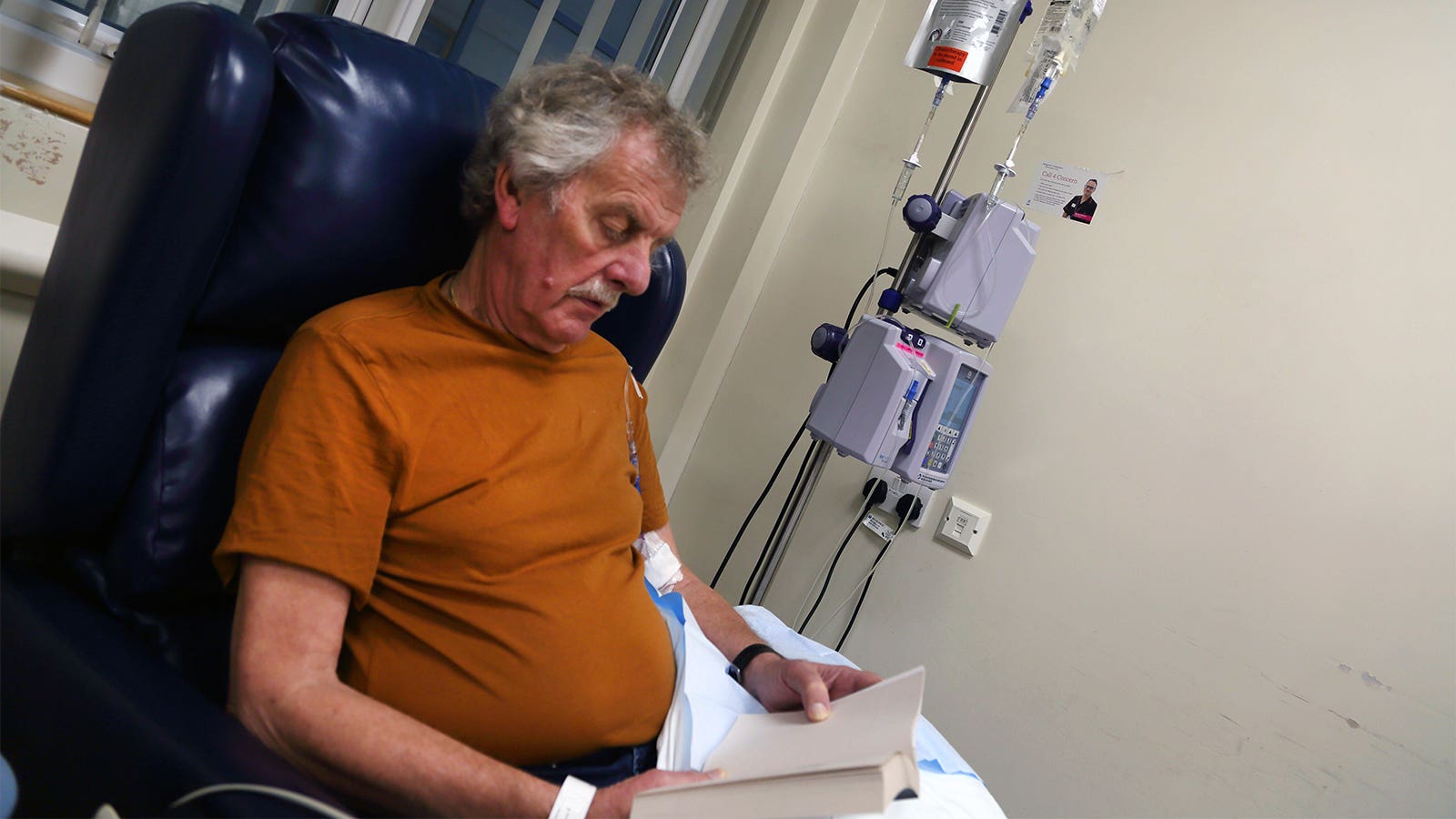— Grade 3 or higher neutropenia, neutropenic complications reduced by 12-fold
by
Mike Bassett, Staff Writer, MedPage Today
November 1, 2023
A reduced-dose schedule of cabazitaxel (Jevtana) plus prophylactic granulocyte colony-stimulating factor (G-CSF) should be offered to older men with metastatic castration-resistant prostate cancer (mCRPC), according to results from the phase III randomized CABASTY trial.
Rates of grade 3 or higher neutropenia or neutropenic complications were about 12 times lower with biweekly cabazitaxel 16 mg/m2 plus G-CSF compared with the standard regimen of triweekly cabazitaxel 25 mg/m2 plus G-CSF (5.1% vs 62.5%; OR 0.03, 95% CI 0.01-0.08, P<0.001), reported Stephane Oudard, MD, PhD, of Georges Pompidou Hospital in Paris, and colleagues.
Among the 196 patients ages 65 and older, grade 3 or higher adverse events (AEs) in general were also more common with triweekly dosing compared with biweekly dosing (72.9% vs 56.1%), they noted in JAMA Oncology.
Despite providing a survival advantage, standard regimens of taxanes, such as docetaxel and cabazitaxel, have been associated with more grade 3 or higher AEs — including neutropenia — in patients ages 75 and older compared with younger patients.
Thus “these data may be practice changing, especially in patients 65 years or older with metastatic CRPC who are often denied chemotherapy in daily clinical routines,” Oudard and colleagues concluded.
In a commentary accompanying the study, Alicia Morgans, MD, MPH, of Dana-Farber Cancer Institute and Harvard Medical School in Boston, noted that “more than simply providing a treatment option” for older men, “this study reminds the community of clinicians caring for patients with prostate cancer that we must engage in studies to define options for treatment that extend the benefit of therapies evaluated in registration trials to the more vulnerable and frail populations.”
Despite the results suggesting “a way in which we can safely and effectively treat the frail older adult population with cabazitaxel, it does come at the expense of more frequent dosing,” she added.
“Approaches to treatment that increase the number of clinic and laboratory visits may pose challenges for some of the patients they are meant to support,” she wrote. Further work is needed to design trials “that not only meet patient needs in terms of cancer control, but also optimize accessibility and reduce burdens.”
For the CABASTY trial, Oudard and team enrolled 196 heavily pretreated patients with mCRPC from France (18 centers) and Germany (seven centers) from May 2017 through January 2021. Median age was 74.6, and 92.3% had an Eastern Cooperative Oncology Group performance status score of 0 or 1. All patients had received previous docetaxel, and 48.1% had received at least three lines of hormone therapy.
Median follow-up was 31.3 months, and relative dose intensities were comparable between groups (median 92.7% in the triweekly group vs 92.8% in the biweekly group).
Median radiographic progression-free survival was similar between the triweekly and biweekly groups (10.25 vs 7.82 months, P=0.89), as was median overall survival (14.1 months in both arms, P=0.39).
Treatment was prematurely discontinued in 70.8% of patients in the triweekly group, mainly due to AEs, and 89.8% in the biweekly group, mainly due to disease progression.
The incidence of serious AEs of any grade was comparable between the groups (43.8% in the triweekly group and 45.9% in the biweekly group), as was the percentage of patients with AEs leading to permanent discontinuation (33.3% vs 31.6%, respectively).
-
![author['full_name']](https://clf1.medpagetoday.com/media/images/author/MikeBassett_188.jpg)
Mike Bassett is a staff writer focusing on oncology and hematology. He is based in Massachusetts.
Disclosures
The study was funded by Sanofi.
Oudard reported receiving personal fees from Astellas Pharma, Bayer, Bristol Myers Squibb, Ipsen, Janssen Pharmaceuticals, MSD, Novartis, Pfizer, and Sanofi.
Co-authors also reported multiple relationships with industry.
Morgans reported relationships with Astellas, AstraZeneca, Advanced Accelerator Applications, Bayer, Merck, Dendreon, Exelixis, Janssen, Lantheus, Myovant, Myriad Genetics, Clovis, Novartis, Pfizer, Sanofi, and Telix.
Primary Source
JAMA Oncology
Source Reference: Oudard S, et al “Biweekly vs triweekly cabazitaxel in older patients with metastatic castration-resistant prostate cancer: the CABASTY phase 3 randomized clinical trial” JAMA Oncol 2023; DOI: 10.1001/jamaoncol.2023.4255.
Secondary Source
JAMA Oncology
Source Reference: Morgans A “Expanding treatment options for older adults with prostate cancer” JAMA Oncol 2023; DOI: 10.1001/jamaoncol.2023.4172.





